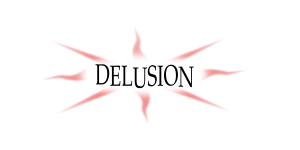Use RSS, Memphis!
 It sounds geeky, but it's more than geeky. Way more.
It sounds geeky, but it's more than geeky. Way more.RSS, depending on who you ask, is either Really Simple Syndication, or Rich Site Summary, or something else. It's often called a newsfeed, or an RSS feed, and is identified by icons like the one to the left, or like this in Safari. What it really is a file that your web site provides giving a summary of your website's content, in a standard format. As your website changes, the file changes, so it provides an up-to-date summary of your website. Who uses it? Someone with a browser, an RSS reader or even another website. Because it's in a standard format, it can be used anywhere and by anyone who can think of ways to use it. Arguably the best use of it to date has been podcasting, where the RSS feed provides podcast receivers like ITunes with a link to recent MP3s and other multimedia files produced by the owners of that website. In short, a way to detour broadcasting hegemony.
But I'm not writing this to provide a crappy explanation of what RSS is. I write it because it doesn't appear that many Memphis institutions use RSS. I see very few of those icons when I visit non-blog Memphis websites. This is probably a legacy condition -- people have older websites created before the advent of RSS's popularity. But it's important that they change for 2 reasons:
1. not having RSS often means that your website is static. A web brochure. It doesn't change much; new data comes in and sits on a desk somewhere because it's too dang hard to put in a webpage. Your website is written in unchanged-by-data HTML and requires a web designer every time you want to change that. Which means that even though the world changes faster every day, you're communicating with that world in 1995 tools -- or not communicating because who has time to learn Dreamweaver or FrontPage (cringe!) or pay a web designer to let people know your organization needs money to pay your web designer. You might use the phone, but then you're using 1876 technologies. You need dynamic websites that are easy to update by everyone in your organization -- from the Executive Director to the Plant Duster. If you don't have RSS, chances are you're still hacking your way through HTML and your stale content shows it.
2. more importantly, RSS is a vanguard. It's the older brother of technologies, open and free and participatory, that allow the sharing and mashing up of your information. Sharing and mashing in ways you probably never imagined. By and with people who you never imagined might want to use it. If you're not using RSS, you're probably not sharing your information by any means but webpages (and badly at that if 1. above is to be believed). Sharing means new audiences, new partners, new markets, new capital, new funding, new friends, new ideas, new possibilities.
Memphis needs that stuff.
Use RSS, Memphis!





1 Comments:
a face in the crowd is a great movie
Post a Comment
<< Home